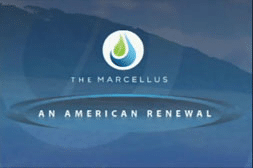A new poll suggests that Pennsylvanians are supportive of unconventional gas drilling in their state. Not because it is safe, but because they are convinced the economic benefits outweigh the risks to public health, water supplies and the environment. This kind of reasoning indicates that gas industry rhetoric is having an impact: advertise the benefits, downplay the risks, convince people that you know what you’re doing and there’s nothing to worry about.
And this is just what the industry has done.
According to the Pittsburgh Tribune-Review, Pennsylvanians are a receptive audience to the extensive public relations campaigns waged by gas interests to confuse the public on the contentious issue of unconventional gas drilling. Between Exxon Mobil’s commercials, Chesapeake Energy’s first-person testimonials from “true Pennsylvanians,” and the Pennsylvania Independent Oil and Gas Association’s billboards lining the highway, industry is leaving no public opinion stone unturned.
Pennsylvania is at the forefront of the gas drilling bonanza since it sits atop the coveted Marcellus Shale, so the oil and gas industry sees every reason to invest in winning public confidence.
The Marcellus Shale Coalition (MSC), an industry group with over 200 member companies, is dedicated to improving the reputation of the industry and influencing public policy to cater to gas interests. With companies paying membership dues between $15,000 and $50,000, the Coalition can afford to buy the opinion of respectable public figures like Pennsylvania’s former Governor turned-lobbyist Tom Ridge, who receives $75,000 a month from MSC to give speeches and guided tours of gas drilling sites. He recently tried to convince Stephen Colbert that he’s “not a lobbyist” but DeSmogBlog quickly revealed that Ridge is definitely registered as a lobbyist in Pennsylvania.
The Independent Petroleum Association of America (IPAA) and its industry funded offspring, Energy in Depth (EID), tag team with the MSC to construct a portrait of energy security dependent on unconventional gas drilling, while attempting to keep fracking – the industry’s Achilles heel right now – out of the spotlight.
The industry’s large PR expenditures and advertising outlays are about more than achieving popularity; these efforts are ultimately designed to influence public policy. “They need to distract the public from the problems,” according to Pennsylvania’s Sierra Club director, Jeff Schmidt.
Energy in Depth’s recent report on the ’shale revolution’ highlights the economic benefits of unconventional gas production in Pennsylvania, including the hiring spree created by the dirty gas boom. The Marcellus Shale Coalition makes the same boast, reporting accelerated hiring rates across the state. The Coalition’s president, Kathryn Klaber, embraced the figures, saying “people who were out of work and now have jobs thanks to Marcellus development are more than statistics.”
But industry critics point out that the June report from the Pennsylvania Department of Labor and Industry is misleading, intended to equate ‘hiring’ increases as job creation. But new hires do not equal new jobs and are often account for job replacements after workers have quit or been fired.
These industry groups, eager to downplay the environmental risks associated with gas drilling, tend to exaggerate the related economic benefits without telling the public about issues like out-of-state workers landing the jobs and taking their pay home, and expenses incurred by local governments related to damage to infrastructure such as roads, not to mention the high cost of responding to contamination incidents, blowouts and other industry mistakes. And it’s worth remembering the historical lesson that the economic effects of a temporary industry ‘boom’ are almost always followed by the bust, a fact the gas pushers don’t bother to discuss.
Numerous reports highlight the cavalier optimism of gas production projections, the problems of dwindling returns in aging wells and, importantly, the irretrievable environmental damage associated with unconventional gas drilling.
These reports, while intending to make a long-term contribution to public policy, are often hard pressed to compete with industry-funded PR.
Gas interests have a remarkable financial advantage over independent experts, environmental organizations and citizen led initiatives. In 2009, the MSC spent a total of $1.8 million on its PR initiatives while the IPAA has an $8 million budget, according to the Pittsburgh Tribune-Review.
The battles currently being fought over unconventional gas drilling legislation leave the future of government oversight of gas fracking uncertain. Uncertainty is never a good feeling for dirty energy’s Wall Street financiers, so the stakes are high for the industry to protect its cash cow (even if the real cows are dying from reckless industry practice).
Tom Hoffman, executive of Carbon Communications Consultants, suggests that gas companies have to strike while the iron is hot. “It is important for them to continue to tell their side of the story because there are still decisions being made by policymakers.”
Strike they will, but a growing chorus of public opposition will continue to counter the rush towards another fossil fuel disaster.
Subscribe to our newsletter
Stay up to date with DeSmog news and alerts






